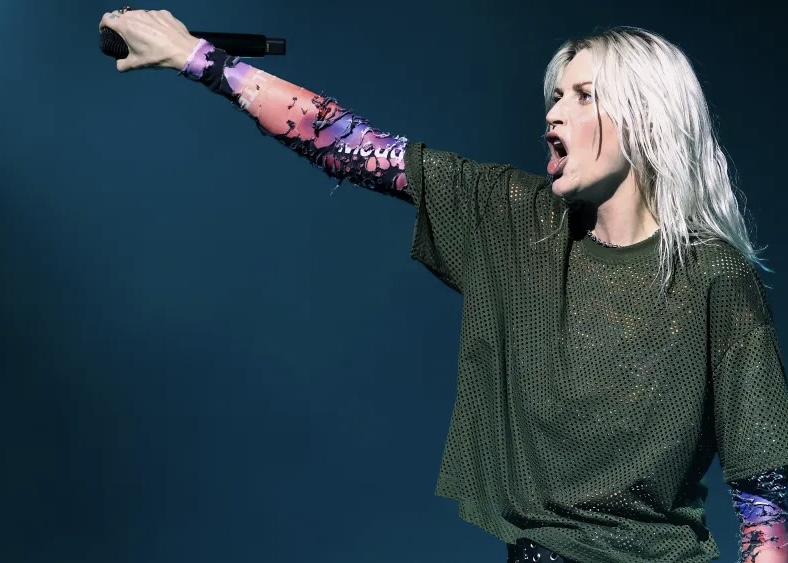Introduction: An Honest Look at Uncertainty
From the opening line of “If there was a choice / To be scraping by,” Finn Wolfhard instantly sets a mood of restlessness. There’s a duality woven into the track—on one hand, the fear of stagnation, and on the other, the refusal to remain inert. The recurring phrase “choose the latter” resonates as a call to embrace risk over complacency.
Verse 1: Feeling Stranded on Ice
“If there was a choice / To be scraping by, ay / On my own time / I'd be stranded on ice, ice / Been walking for miles”
- Theme of Survival: Opening with an image of being “stranded on ice,” the speaker is in a precarious position—physically and emotionally.
- Scraping By: The notion of scraping by “on my own time” hints at feeling like life is a solitary trek, lacking safety nets or certainty.
- Distance and Discomfort: “Been walking for miles” paints a picture of exhaustion or persistence, as though the narrator has been pushing forward despite the bleak circumstances.
Pre-Chorus: Permanent Fear
“As it seems by the sea / I’m afraid it’ll stick permanently”
- Shifting Landscape: Moving from ice to the sea suggests a fluid setting, but the fear remains the same—hoping it won’t become permanent.
- Emotional Undertow: The sea can symbolize the unknown or the subconscious. This line captures the anxiety that these uncertain feelings might never fade.
Chorus: Choosing or Shooting “the Latter”
“If I don’t move and I can’t see / I choose the latter, choose the latter
If I can’t fall and I can’t breathe / I shoot the latter, shoot the latter”
- Facing Inertia: The chorus poses a hypothetical: when you can’t move or can’t see, do you stay still or take a leap? “Choose the latter” is about picking the difficult—but active—path.
- Dual Meanings of ‘Shoot’: “I shoot the latter” might imply both an action of seizing the moment and the frustration that comes with not having a gentler option.
- Affording Dreams: “Why can’t I afford my dreams?” underscores a longing for more than just survival—there’s a desire to break free from limitations.
Verse 2: A Lingering Voice in the Night
“There was a voice / I can hear it all night, ‘ight / Get it out now / Just hope for the best, best / And hope for nuance”
- Midnight Reflections: Hearing a voice “all night” indicates an internal or external prompting that won’t let the narrator rest.
- A Call to Expression: “Get it out now” might refer to art, conversation, or raw emotional release.
- Seeking Nuance: It’s not just about brute force change; it’s about understanding life’s complexities and acting with thoughtfulness.
Pre-Chorus (Revisited): Permanent Shame
“As she sings by the sea / It’s a shame, crying shame, permanently”
- Another Perspective: Now the pre-chorus is about “she” singing by the sea, suggesting someone else’s struggle or lament.
- Shared Longing: The repeated notion of permanence implies that the fear or shame might linger, emphasizing how collective these anxieties can feel.
Chorus (Revisited): The Weight of Being Seen
“When it all points at me / I choose the latter, choose the latter
Why spend the night alone / When we can lose tomorrow?”
- Spotlight Anxiety: “When it all points at me” highlights the pressure of being in the spotlight—maybe from others’ expectations or personal ambition.
- Rejecting Isolation: The question “Why spend the night alone / When we can lose tomorrow?” hints at preferring shared risk over solitary safety. It’s an invitation to connect, possibly to face the unknown together.
Conclusion: Embracing the Risk and Reclaiming Hope
Finn Wolfhard’s “Choose the Latter” isn’t just about standing at a crossroads; it’s about recognizing that sometimes anymovement is better than remaining stuck. By weaving together vivid imagery of ice, sea, and sleepless nights, the track reminds listeners that fear can be both paralyzing and motivating. In the end, “choosing the latter” becomes a mantra for taking bold steps—even if the outcome is uncertain. When you can’t see, when you can’t speak, when the spotlight forces you to decide—choose motion over inertia, risk over regret, and hope over the safety of standing still.
.png)









